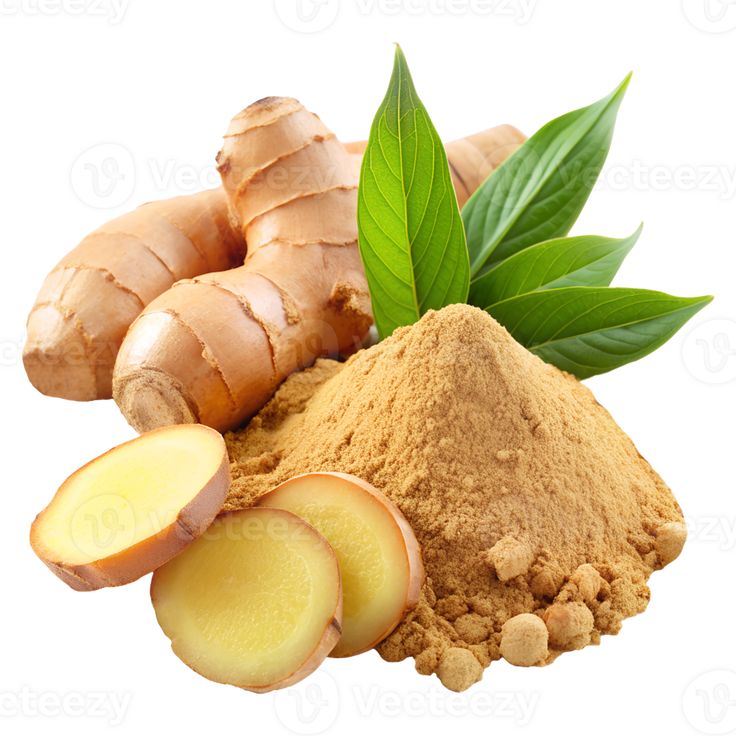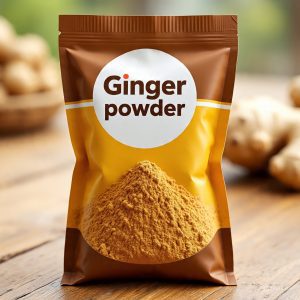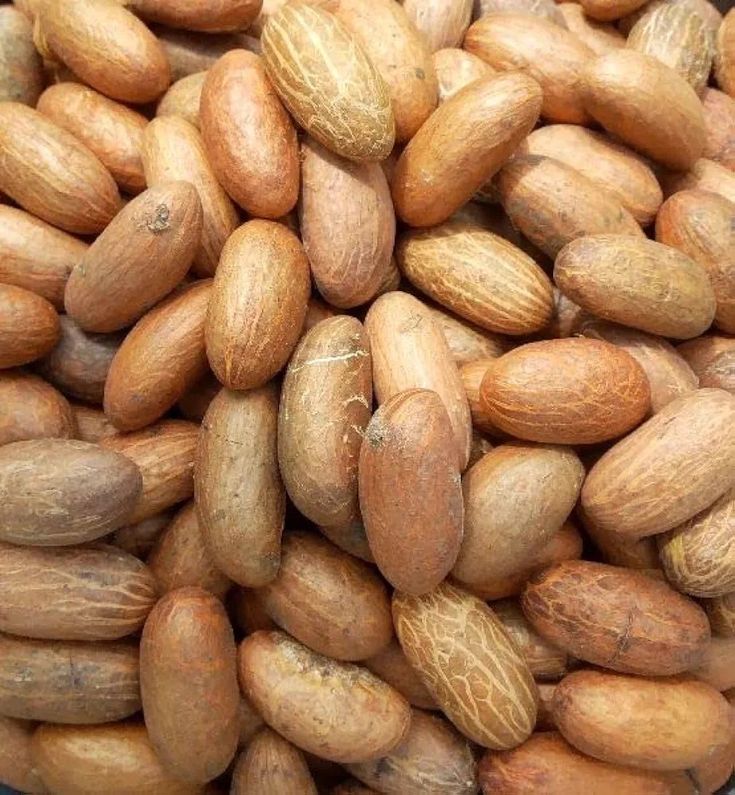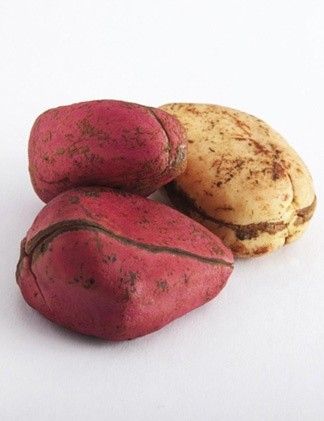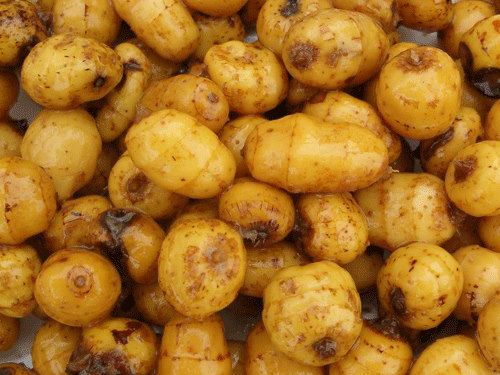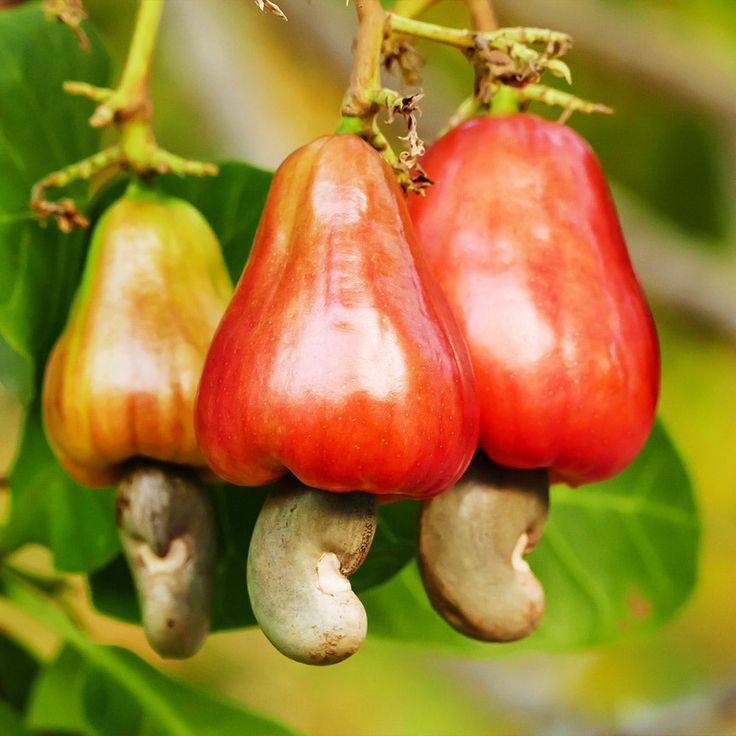What It Is
Ginger (Zingiber officinale) is a flowering plant widely cultivated for its rhizome (underground stem), which is used as a spice, flavoring agent, and traditional medicine. Nigeria is among the top producers and exporters of ginger globally, known especially for its high oil content, pungency, and aromatic flavor. Nigerian ginger is highly demanded in Europe, the Middle East, Asia, and North America, both in raw and processed form.
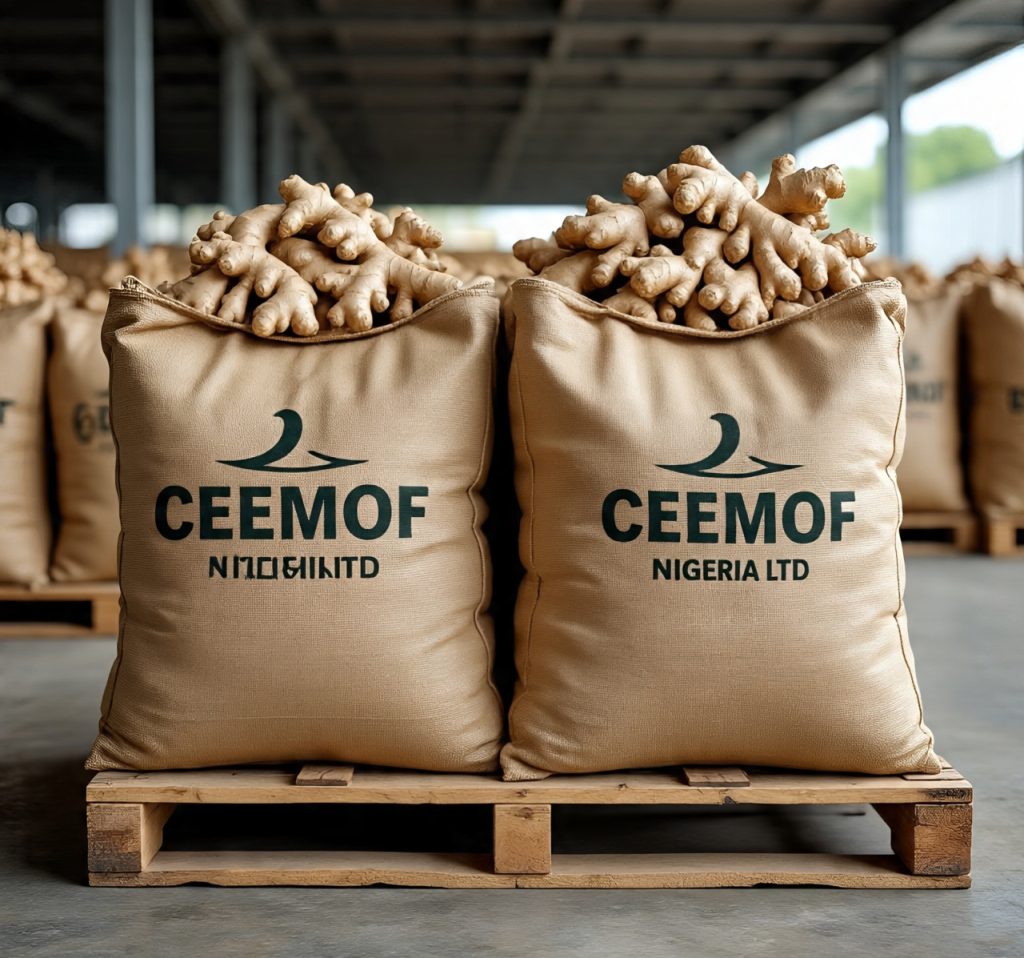
Forms of Ginger for Export
Ginger can be exported in different forms depending on buyer requirements and end-use:
-
Fresh Ginger – Harvested rhizomes cleaned, sorted, and exported in their raw state.
-
Dried Ginger (Split/Whole) – Fresh ginger is cleaned, peeled (or unpeeled), sliced, and sun-dried or mechanically dried.
-
Powdered Ginger – Finely ground dried ginger packaged for food and industrial uses.
-
Ginger Oil – Extracted through steam distillation, used in food flavoring, cosmetics, and pharmaceuticals.
-
Ginger Extract/Concentrate – Used in beverages, syrups, and medicines.
Uses of Ginger
-
Food Industry: Spices, condiments, teas, confectioneries, and beverages.
-
Pharmaceuticals: Used in medicines for anti-inflammatory, anti-nausea, and digestion aid.
-
Cosmetics & Personal Care: Ingredient in creams, lotions, soaps, and essential oils.
-
Nutraceuticals & Herbal Remedies: Used in health supplements and tonics.
-
Beverage Industry: Key ingredient in ginger ale, ginger beer, energy drinks, and herbal teas.
Packaging for Export
-
Fresh Ginger: Packed in mesh bags (10kg–30kg) or cartons with perforation for airflow.
-
Dried Ginger: Exported in jute bags, polypropylene bags, or cartons (25kg–50kg).
-
Powdered Ginger: Sealed in moisture-proof bags or containers (1kg–25kg).
-
Ginger Oil/Extract: Exported in sealed, food-grade containers or drums (5L–200L).
Packaging must comply with international food safety standards and labeling requirements (batch number, product grade, weight, origin, and HS code).
Export Specifications (Typical Requirements)
-
Moisture Content: ≤ 10% (for dried ginger).
-
Volatile Oil Content: Minimum 1.5 ml/100g.
-
Ash Content: ≤ 8%.
-
Acid-Insoluble Ash: ≤ 2%.
-
Foreign Matter: ≤ 1%.
-
Appearance: Clean, free from molds, insects, and foreign odor.
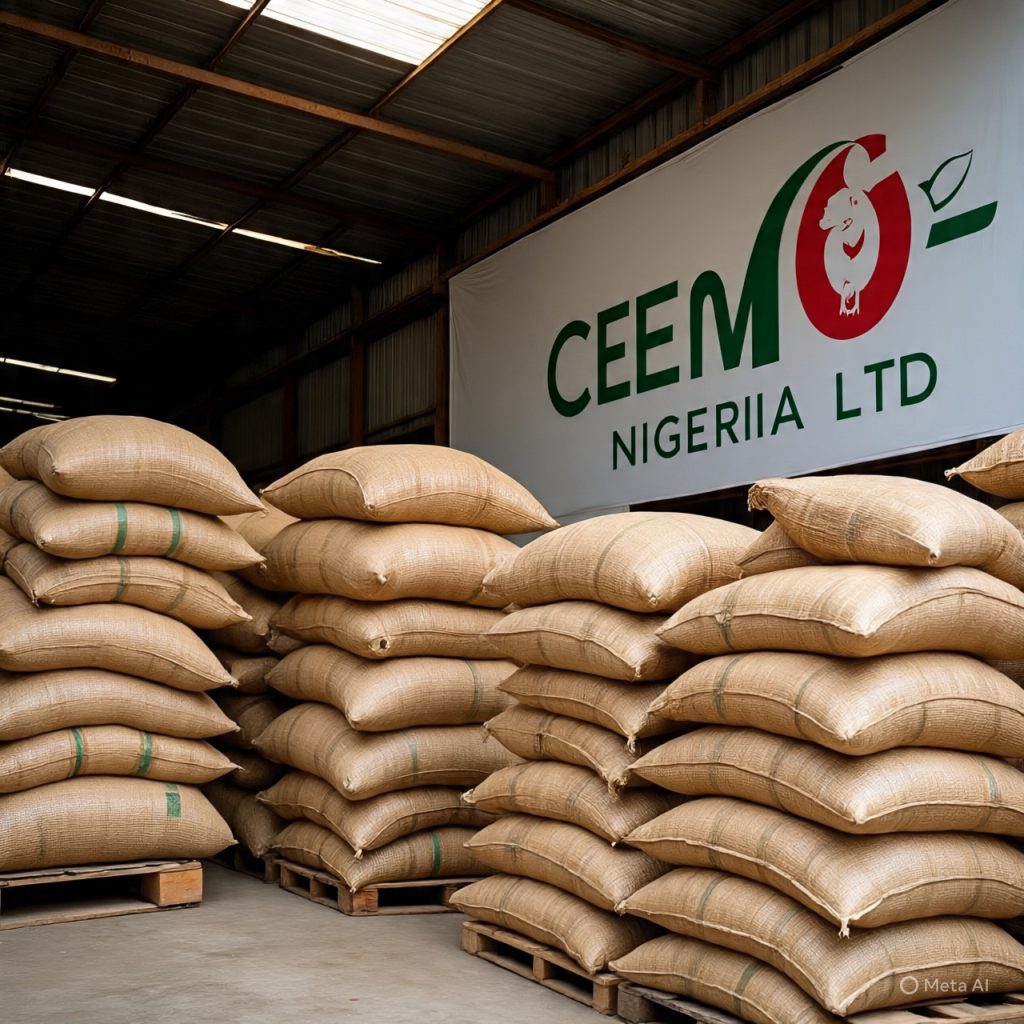
HS Codes for Ginger
-
Fresh Ginger: HS Code 0910.11
-
Dried Ginger (whole, split, crushed, powdered): HS Code 0910.12
Major Importing Countries
-
Europe: UK, Germany, Netherlands, France.
-
Middle East: UAE, Saudi Arabia, Qatar.
-
Asia: India, China, Japan, Pakistan.
-
North America: USA, Canada.
Market Opportunities
-
High global demand for organic ginger.
-
Increasing use in health and wellness products.
-
Rising demand for ginger powder and oil in the international market.
-
Nigeria’s competitive advantage: unique pungency, flavor, and high yield.
Conclusion: Ginger export is highly profitable due to its year-round demand and multiple value-added forms. Exporters who focus on quality processing, standard packaging, and international certifications (such as HACCP, ISO, and Organic Certification) can dominate the global market.

